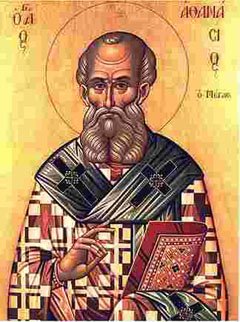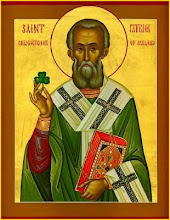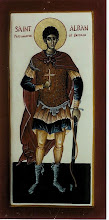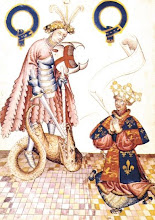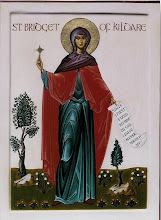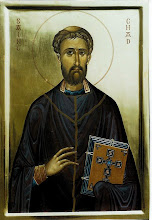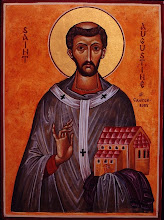One of the most important points of the Christian faith, lately disregarded as out-dated by many theologians of the more liberal persuasion, is the belief in the transforming power of Christ Jesus, or more specifically, that we are transformed from the old sinner into the new child of God. When saving grace is bestowed and the new Christian is indwelt by the Holy Spirit, who and what we were in the world becomes a new creature in Christ Jesus. Does this mean that we will never again sin? Does this great, miraculous transformation make us perfect beings? Certainly not, but it does mean that our outlook changes. It means that we view our sin differently. It means that, while we may not necessarily commit any less sin, we know that it is in fact sin. It means that we abhor our sins and that we trust in the power of the love and sacrifice of our God and His Son to save us and heal us from them. It means that, since we do recognize our wrongdoings for what they are, we will strive to do better. Paraphrasing St. Paul the Apostle, “I do the things I do not want to do, and I do not do the things I want to do.” St. Paul’s statement illustrates the human condition where sin is concerned, as well as his change of heart.
Modern, liberal Christianity teaches that God “loves and accepts us as we are….” While this is true, as far as it goes, it is but one side of the coin. God does love us and accept us just exactly as we are, sin and all. The Holy Scripture teaches us that, while we were yet sinners Christ died for us. This is a testimony to His great love for humanity. However, what is dismissed by liberal theology as closed-mindedness and bigotry, the belief in the transformation of salvation, is as great a testimony as the former to the awesome love of God for His people. Our Lord taught us that God is the Father of His people. He taught us that we can call upon God as “abbah,” which is a familiar term for father. The ideal relationship between earthly fathers and sons is modeled on the relationship between God the Father and His Son. Our earthly fathers accept us as we are because they love us; however, the love of a father leads him to wish for that which is best for his son. If a son has things in his life which are detrimental to his well-being, his father would want and expect him to change or do away with those things. The father’s love for his son compels him to see the best in his son while at the same time wishing for better things. Our heavenly Father is no different…or He is different in that His love is greater and more perfect than any earthly father’s could be. Our heavenly Father loves us, seeks us, and accepts us just as we are – sins and all. However, His love compels Him to expect us to change or eliminate that which is detrimental to us for our own sakes.
This brings us to another fundamental disagreement – how do we know what behavior is sinful? Here we have a question which should be easily answered. It is generally held within Christianity that the Bible, the Holy Scriptures, is God’s Word written for us. This being said, we should be able to read God’s words to us and know what He deems right or wrong. From the books of Moses to the Gospels of our Lord and the epistles of His Apostles we have a congruous witness to the will of God for His people spanning several thousands of years. Recently, however, (and by recently I mean over the last half century) there has emerged a movement within mainline Christianity, which puts forth the notion that God “is doing a new thing.” New methods of Biblical criticism subvert the teachings of the apostles in favor of social trends and political correctness. In short, God is now, after all these millennia, contradicting Himself. Since the earliest times we have seen societies shaped by theological truth, where now we see theology shaped by sociological truth. We see claims that science has proven the genetic predisposition of some people to “alternate orientations”. “Science” has said that our genetic make-up determines if we will be predisposed to addiction (to alcohol, narcotics, nicotine, sex, etc.), infidelity, homosexuality, as well as other, unaccepted (not to mention illegal) activities to include homicide and pedophilia. Now, before anyone misunderstands, I am not equating any one of the aforementioned “conditions” with any other. I am simply relating some of those things with which DNA is credited to one extent or another. The truth of the matter is that every single one of the things listed above is an activity, an action, a behavior, a choice - with the exception of one, which will be explained later. While addiction may or may not be genetic, the person with that predisposition has the choice as to whether or not he/she will act on it. If the person chooses to act on that predisposition the addiction manifests. Conversely, if the addict, after having allowed the addiction to manifest itself, wishes to break the addiction, he/she must choose to do so. Basically the same things can be said of the other listings. A spouse must choose to be unfaithful and then act on that choice in order for infidelity to occur. Homicide and pedophilia, both illegal and immoral acts to be sure, genetic predisposition being of no consequence, are behaviors which must be chosen by the perpetrators. These are universally considered wrong behaviors by societal norms despite whatever genetic predisposition may exist, although infidelity is viewed less harshly than the others and may be accepted as normative by many. I have purposely left homosexuality for last.
Sexual orientation is most often explained as a preference for one type of partner or another. Heterosexuality obviously denotes the preference for a partner of the opposite sex, while homosexuality obviously denotes the preference for a partner of the same sex. The fact of the matter is that whether or not either of these is due to genetics is of no import. Being attracted to one person or another is not at issue because it is not a behavior. However, acting on that attraction is a behavior. Holy Scripture tells us that sex of any kind outside the bonds of marriage is sinful, which brings us back to the question posed earlier: “how do we know what behavior is sinful?”. Or more specifically, “what is marriage?”…
To be continued…
St. Michael the Archangel
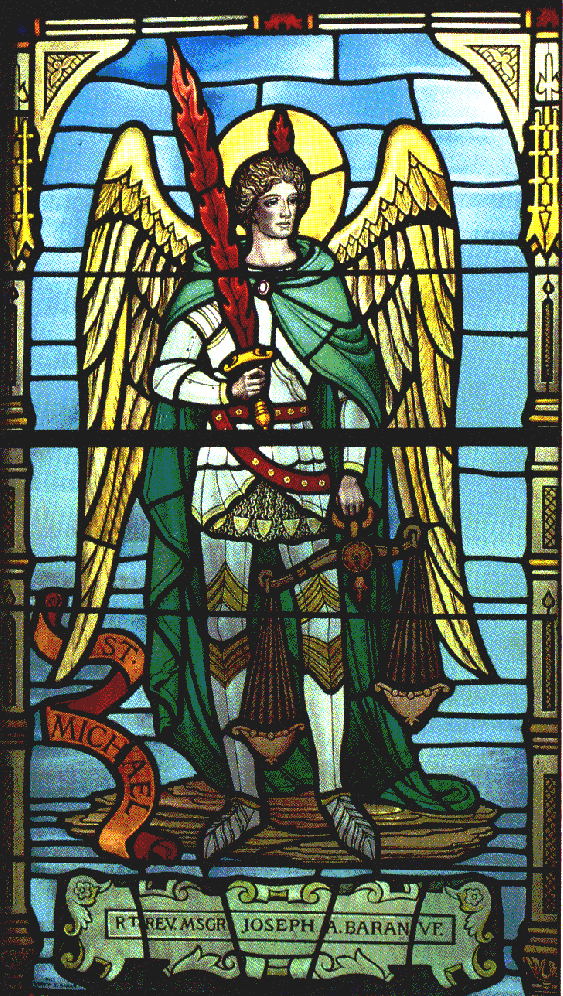
Patron Saint of Police Officers
Sunday, May 25, 2008
Transformation
Posted by
Jerry S
at
1:46 AM
0
comments
![]()
Thursday, May 15, 2008
Protestant or Catholic - Anglicans Must Decide
From "To All the World..." - Robert S. Munday, Dean of Nashotah House Theol. Seminary
Ruth Gledhill, of the London Times, reports:
"Hard words for Anglicans from the head of the Council for Christian Unity in Rome. Cardinal Walter Kasper has told the Catholic Herald that now, with Lambeth approaching, is the time for Anglicans to decide whether they are Catholic or Protestant. 'Ultimately, it is a question of the identity of the Anglican Church. Where does it belong?' he said. 'Does it belong more to the churches of the first millennium -Catholic and Orthodox - or does it belong more to the Protestant churches of the 16th century? At the moment it is somewhere in between, but it must clarify its identity now and that will not be possible without certain difficult decisions.' The genius of Anglicanism has always been its ability to straddle the divide, but maybe the Cardinal is right and the Communion's present difficulties reflect the impossibility of continuing to do this."
Recovering the faith that was held universally, from antiquity, and by all, is what many of the Reformers believed they were doing in protesting against the medieval innovations and errors of the Roman Church. While the Radical Reformers did not care whether they rejected Rome and catholicity as well, our Anglican forebears were careful to demonstrate that their teaching was in accord with both Holy Scripture as it was understood and interpreted by the early Church Fathers and Councils of the undivided (Catholic) Church. So are Anglicans Protestant? Yes, in that our forebears protested against Rome's departure from true catholicity. Are Anglicans Catholic? Yes, in that our forebears always sought to maintain the Catholic Faith--as Vincent of Lerins would have recognized.
Read it all here.
Posted by
Jerry S
at
10:59 PM
0
comments
![]()
Subscribe to:
Posts (Atom)
